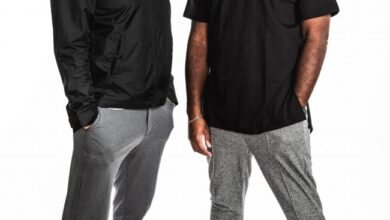If you’re into head-scratching puzzle games that play with size, scale, and perspective, you should absolutely check out the new release Maquette. If you’re the type of gamer who loves a slow-pace, romantic visual novel told in an unconventional way, you should also pick up Maquette. And if you’re looking for all of the above, along with too-real writing that cuts to the quick of your relationships, past or present, and lays bare to the world all of your vulnerabilities and foolish mistakes … well, Maquette is among the best examples in this very specific category of games.
To call it a “game” even feels a little funny, though it’s described as a “first-person recursive puzzle game within a love story developed by Graceful Decay and published by Annapurna Interactive.” Maquette is more of a catharsis via highly stylized artwork, a virtual walk down a memory lane populated with experiences both pleasant and painful, a hopeful path toward healing after tearing the scabs free from old wounds. It’s less of a game and more of an experience, one I’m glad I undertook and advise others to do the same. [It’s also available right now on PlayStation 4, PlayStation 5 (free for PS+ subscribers), and PC via Steam.]
Here’s the official synopsis:
In Maquette, which features Hollywood stars Bryce Dallas Howard and Seth Gabel voicing the lead roles of Kenzie and Michael, players are invited to navigate memories by exploring worlds-within-worlds filled with awe-inspiring architecture. Each chapter in this modern-day love story features unique interactive puzzles as the player journeys through a game filled with stunning environments, eye-opening moments and an adventure of love, loss, and acceptance.
Check out the latest trailer for Maquette to get a sense of the style, scope, and scale:
Maquette starts out innocently enough. The game drops the player into first-person perspective in a lovely lavender-shade garden cast in the San Francisco moonlight. There’s little to do here but explore, take in your surroundings, and listen to the first of a few specifically chosen songs — roughly one per chapter or sequence — which are pitch-perfect and mood-appropriate. The controls are minimal; you’re able to roam freely and look around at will, assisted only by a rather weak jumping skill and the vital ability to interact with grabbable items and manipulate them. It’s this last game mechanic that literally opens up the world(s) of Maquette as you explore, be it by the turn of a key, the building of an impromptu bridge, or the navigation of a shattered world via a crystal ball rooted in memory.
There’s a lot of sensory information to take in as you play Maquette. (If smell-o-vision was a thing, I bet the early stages of this experience would be heavenly, especially that county fair environment.) The visuals are striking and unique, impossible to separate from the experience itself and yet the foundation of the game’s framing story which centers on two young artists who are falling in love with each other (played by real-life married couple Bryce Dallas Howard and Seth Gabel). You’re in their memories, in a sketchbook that documents their history together, walking around in a living scale model of their hopes and dreams and imaginings. When everything is bright and shiny and new and whole, it’s a wonderful experience. When things start to show cracks, when the decay creeps in, when buildings and sidewalks grow neglected and the skies roll dark, well, that’s when the experience gets a bit more harrowing and heartbreaking.
And yet, the puzzles must be solved if you hope to continue on. So as much as I love the style and substance of Maquette, from the blissful beginning to the tearful conclusion, it’s the brilliant use of scale that hooked me well before I ever got my hands on it. By being able to manipulate certain items in this world of memory and dream, keys can become bridges (or even ramps, you cheeky Devs…), crystals can become keys, and the hub world of the maquette itself can become a sort of transporter to the far side of the world, even if it’s but a simple stride or two away for your giant self.
If you’ve ever felt a sense of awe by stories like Gulliver’s Travels, movies like Honey, I Shrunk the Kids, or games like Grounded, you’ll feel that same flutter in Maquette from beginning to end. The scale is never not mind-blowing, at least for me. The solutions, often simple in hindsight but occasionally frustratingly obtuse while trying to solve a problem, are almost always clever uses of the world itself, the objects within it, and the secrets that reveal themselves depending on your perspective. The puzzles are satisfying to solve, though hampered by somewhat clunky controls every once in a while. (And don’t get me started on that jump skill; luckily the platforming requirements are rather tame and are few and far between.) And once you connect the meaningful parts of the story with the objects captured in and manipulated by memory, the whole thing hits you right in the feel-filled heart.
Maquette is that rare title that’s more than a game, a singular experience undoubtedly rooted in some real-world pain, regret, and hopefully, absolution. It may not be for everyone, but in my opinion, the puzzles, the playfulness with perspective, the relationship arc, the art and the music and the variety of level design, these all add up to a whole that is so much more than a mere sum of the game’s individual parts. Maquette will test your puzzle skills, your patience, and maybe even your relationships, either with yourself or with others, but at the end of the road, I hope you will find that it was well worth the journey.
Rating: B+
About The Author









































